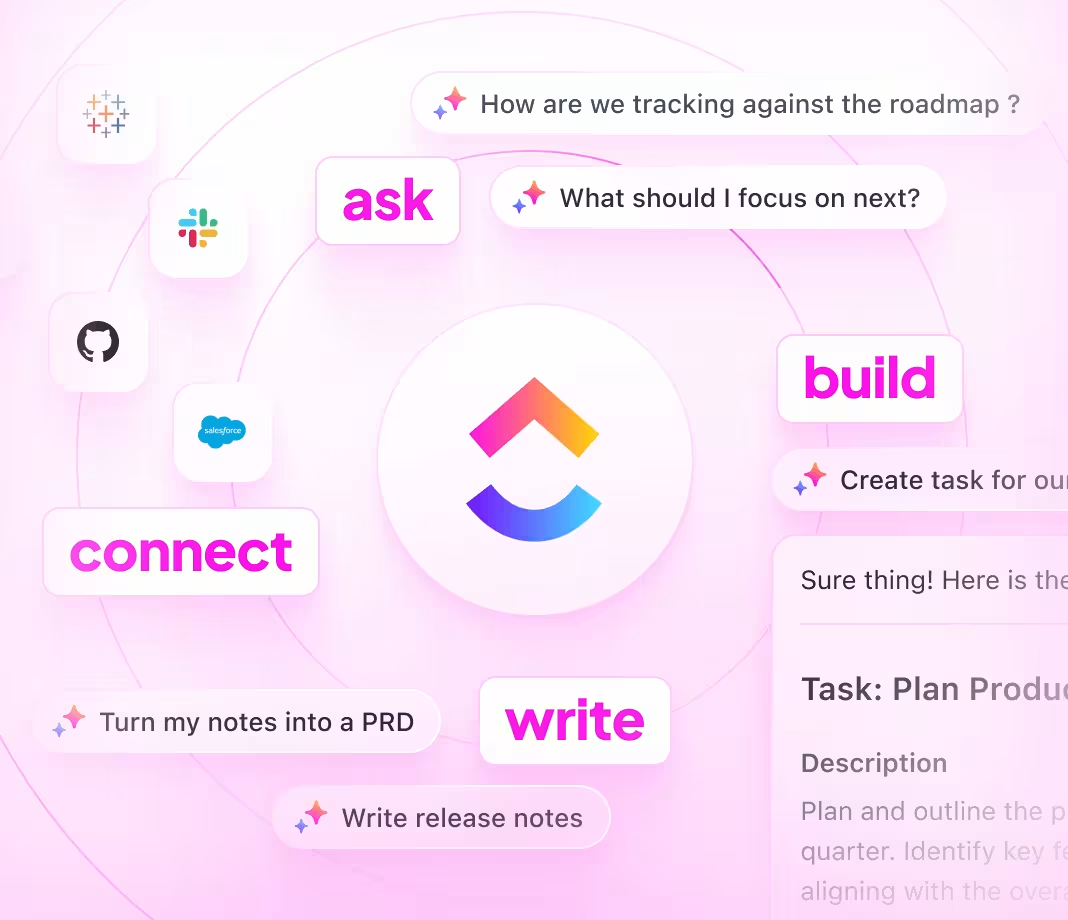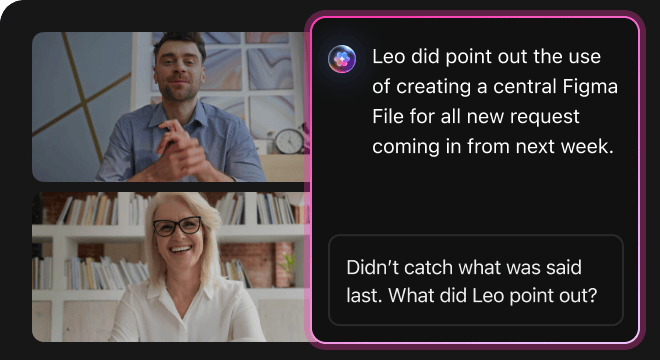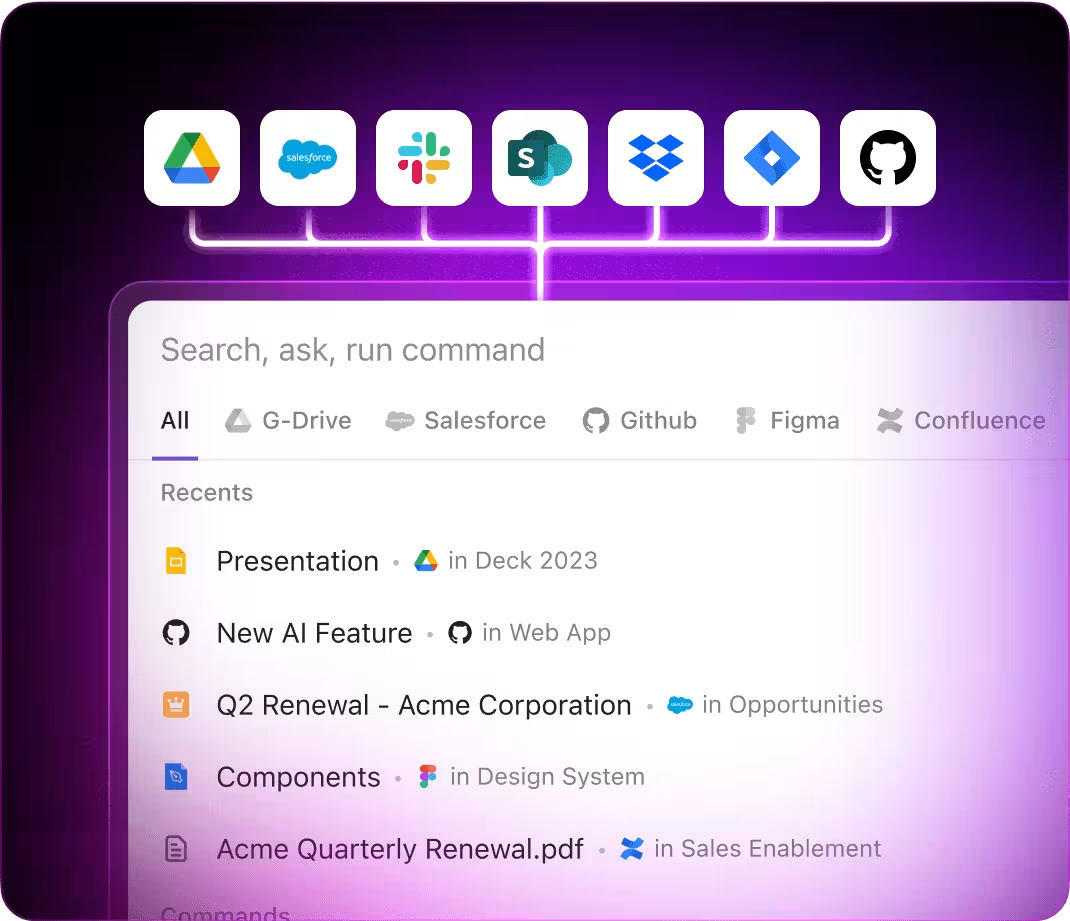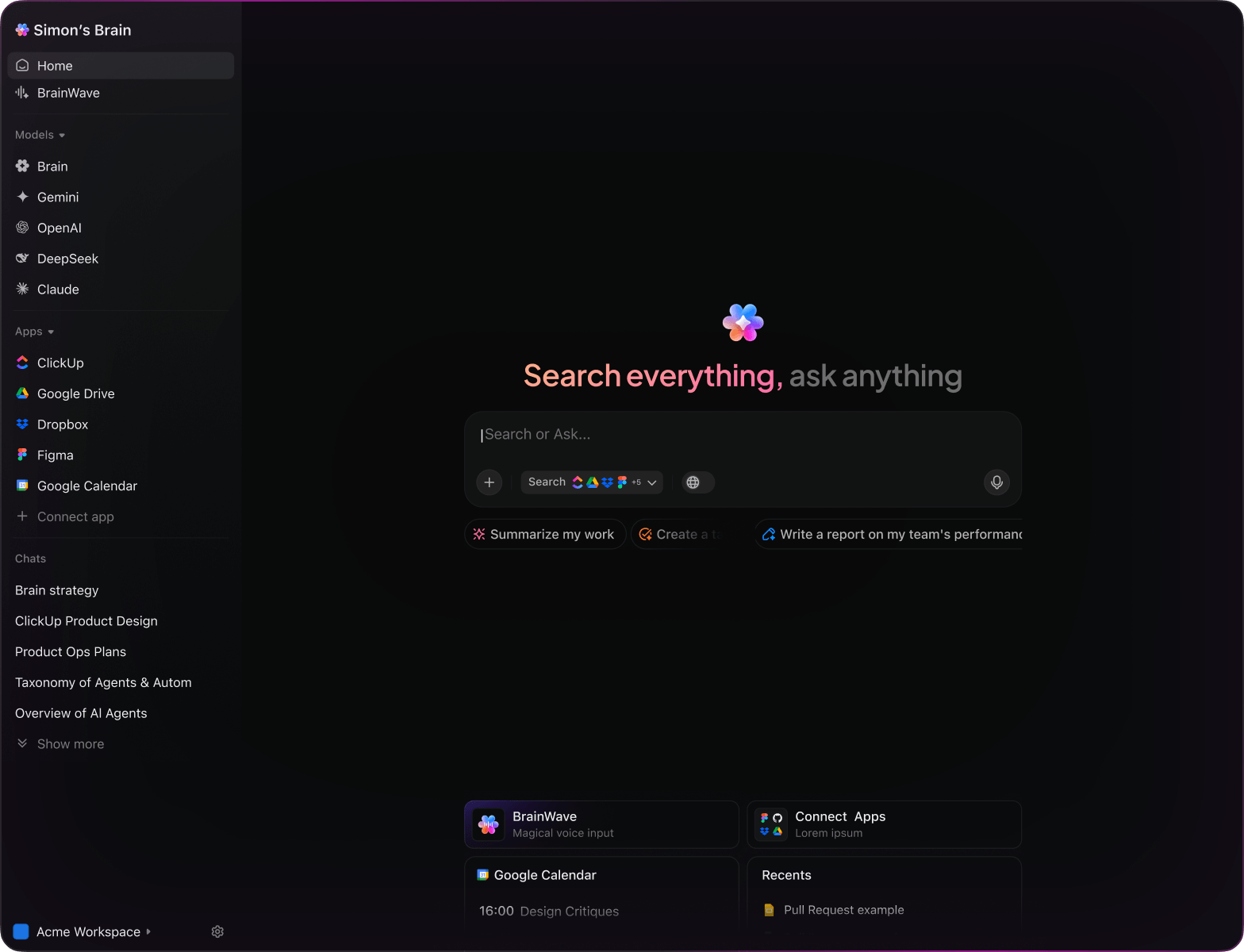Top AI Prompts for Literature Review

AI Prompts Revolutionizing Literature Review Processes
Conducting a thorough literature review goes beyond reading papers—it's about organizing vast information efficiently.
From sourcing articles to synthesizing findings and tracking citations, literature reviews involve managing numerous sources, notes, and deadlines. AI prompts are now pivotal in simplifying these tasks.
Researchers leverage AI to:
- Quickly identify key themes and relevant studies
- Generate summaries and annotated bibliographies with ease
- Extract critical data points from lengthy texts
- Transform scattered notes into structured outlines or project plans
Integrated within familiar tools like documents, whiteboards, and task trackers, AI in platforms such as ClickUp Brain acts as a silent partner, converting your research inputs into clear, manageable actions.
Why ClickUp Brain Stands Out
Conventional AI Assistants
- Constantly toggling between apps to find relevant info
- Repeating your objectives with every query
- Receiving generic, irrelevant feedback
- Hunting through multiple platforms for a single document
- Interacting with AI that lacks proactive engagement
- Manually switching between different AI engines
- Merely a browser add-on without deep integration
ClickUp Brain
- Instantly accesses your literature review tasks, notes, and team discussions
- Retains your project context and research aims
- Delivers insightful, context-aware guidance
- Searches across all your resources in one place
- Supports voice commands with Talk to Text
- Automatically selects the optimal AI model: GPT, Claude, Gemini
- Native applications for Mac & Windows designed for efficiency
15 Essential AI Prompts for Literature Review with ClickUp Brain
Identify 5 key thematic approaches in recent renewable energy research, based on the ‘Spring 2025 Literature Summary’ document.
ClickUp Brain Behavior: Analyzes linked documents to extract major themes and suggest focused review directions.
What are the emerging research trends in cognitive psychology since 2020 according to our internal review notes?
ClickUp Brain Behavior: Integrates insights from internal documents; Brain Max can supplement with relevant external publications if available.
Create a concise overview of qualitative research methods, referencing ‘QualMethods_Notes’ and previous literature reviews.
ClickUp Brain Behavior: Extracts and synthesizes key methodological points from linked files into a structured summary.
Summarize and contrast main theoretical models in organizational behavior using the ‘OrgBehavior_2023’ document.
ClickUp Brain Behavior: Pulls comparative data and narrative explanations from internal sources to generate a clear synopsis.
Identify top data analysis methods used in recent health research, referencing R&D notes and methodology papers.
ClickUp Brain Behavior: Scans documents to list frequently applied techniques along with contextual notes.
From the ‘ResearchValidity_Guide’ document, create a checklist for assessing study reliability and validity.
ClickUp Brain Behavior: Extracts criteria and formats them into a practical evaluation checklist within a task or document.
Identify three prominent themes in climate change research from recent studies and review articles.
ClickUp Brain Behavior: Detects recurring topics and synthesizes findings from linked research documents.
Summarize main findings on user preferences in educational technology from the ‘EdTech_Survey_2024’ document.
ClickUp Brain Behavior: Analyzes survey data to highlight common trends and user insights.
Write concise and clear abstracts for systematic reviews using style guidelines from ‘WritingTone.pdf’.
ClickUp Brain Behavior: Adapts tone and style from the guide to produce varied abstract drafts.
Outline recent changes in publication ethics and their implications for manuscript preparation.
ClickUp Brain Behavior: Reviews compliance documents and summarizes key points; Brain Max can add public updates if available.
Create detailed citation and referencing guidelines for interdisciplinary research, referencing workspace style guides.
ClickUp Brain Behavior: Extracts formatting rules and compiles them into an accessible checklist.
Using US Research Council standards and internal meta-analysis folders, create a quality assessment checklist.
ClickUp Brain Behavior: Identifies standards and organizes them into a structured task list by assessment criteria.
Summarize how sustainability is addressed across studies from leading journals using competitive analysis docs.
ClickUp Brain Behavior: Condenses comparative data into clear summaries or tables for quick reference.
What are the latest trends in applying AI to education since 2023?
ClickUp Brain Behavior: Synthesizes insights from research notes, reports, and uploaded articles.
Extract and prioritize user-reported challenges from Southeast Asia digital library feedback folders (navigation, access, features).
ClickUp Brain Behavior: Analyzes survey responses and feedback notes to highlight critical usability gaps.
AI Prompts Tailored for Literature Reviews with ClickUp Brain
ChatGPT Literature Review Prompts
Gemini Literature Review Prompts
Perplexity Literature Review Prompts
ClickUp Brain Literature Review Prompts
Transform Initial Thoughts into Polished Reviews
- Convert scattered notes into structured literature summaries swiftly.
- Generate new perspectives by analyzing previous research findings.
- Develop standardized templates to accelerate each review cycle.
Brain Max Boost: Quickly access prior studies, annotations, and reference materials to fuel your upcoming literature analysis.

Accelerate Literature Review Workflow
- Break down extensive research into manageable tasks effortlessly.
- Transform scattered notes into organized, assignable items.
- Automatically compile summaries and reference lists without extra effort.
Brain Max Boost: Instantly access previous review insights, citation details, or thematic analyses across your projects.

How AI Prompts Elevate Every Phase of Literature Review
Instantly Craft Comprehensive Summaries
Researchers compile key findings swiftly, enhance understanding, and avoid information overload.
Enhance Critical Evaluation Skills
Make informed judgments, reduce bias, and develop reviews that resonate with academic standards.
Spot Gaps and Inconsistencies Early
Identifies overlooked studies, prevents errors, and improves the reliability of your review.
Align Teams with Shared Insights
Facilitates clear communication, harmonizes perspectives, and accelerates consensus among collaborators.
Drive Innovative Research Directions
Inspires novel hypotheses, uncovers emerging trends, and keeps your work at the forefront.
Integrated AI Support Within ClickUp
Transforms AI-generated insights into actionable tasks, propelling your literature review forward.

